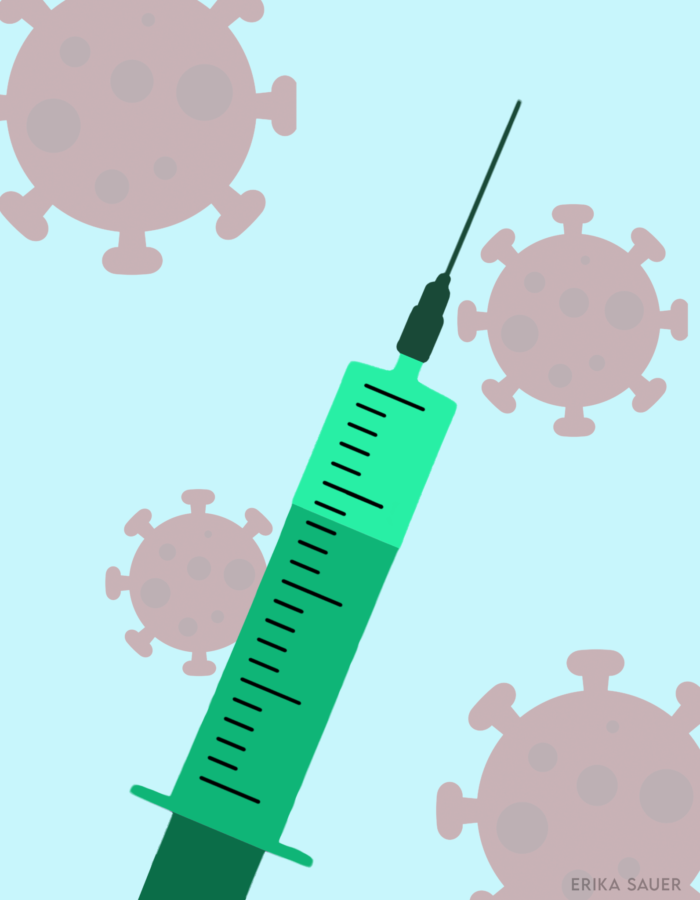Vitamin D is just one of the several vitamins in your multivitamin that you take—or don’t take—every morning, right?
Factually, yes. But the real question is whether or not it’s enough.
We get most of our vitamin D from the sun, and we’ve got plenty of that here in Florida, right? Right again—but is it really enough?
Of course, you should always consult your doctor before taking supplements, but just a fair amount of research, and more than likely your doctor, will tell you more than what you’re consuming in vitamin D is a good idea.
Vitamin D is found in a few different forms: D2 and D3 are the most common. D3 is the one that will be referred to throughout this article, because, according to an article published by Global Healing Center in June 2014, that’s the type that aids in the important biological processes that vitamin D has to offer.
The positives of taking in sufficient vitamin D are many. According to Harvard and the National Institutes of Health, studies have shown that increasing your vitamin D intake can not only help with bone health, but can reduce the risk of cancer, boost the immune system, reduce inflammation and help cognitive function.
The first, most relevant benefit of vitamin D for a college student is its ability to help fight the common cold or other sickness making its way around campus.
The flu and colds tend to happen more in the winter months when the sun is less present. Diseases such as multiple sclerosis, which have been linked to vitamin D deficiency, are also more prominent in colder places further from the equator.
This led a British doctor in the 1980s to hypothesize that there may be a link between lower vitamin D levels and sickness. There have been plenty of studies done in regards to this hypothesis. One study was done in Japan in 2010.
This study showed that the children taking additional vitamin D during the flu season were 40 percent less likely to get the flu than those who took a placebo.
One of the main concerns of having a vitamin D deficiency is the weakened immune system, as well as chronic inflammation. In the long-term, a deficiency can eventually lead to bone problems — namely weak, soft, brittle bones.
Part of the reason for the significant effect on bone health is that vitamin D is an important player in the game of calcium absorption. Not only calcium, but magnesium and phosphorous as well.
Another important benefit of making sure you’re getting enough of this versatile vitamin is to help fight against inflammation, which can lead to autoimmune diseases, which are typically chronic, and sometimes fatal. They affect your immune system in a way that makes your white blood cells attack your body. When left uncared for, they can worsen quickly and cause a myriad of health problems such as lupus, Type 1 diabetes and rheumatoid arthritis (a chronic inflammatory disorder affecting joints).
Autoimmune diseases are becoming more and more common every day. These diseases are inextricably related to inflammation. The National Institutes of Health says that inflammation is the “classic sign of an autoimmune disease.”
People with autoimmune diseases have been said to be deficient in some of, or all of the fat-soluble vitamins: A, D, E and K. Vitamin D is the best understood vitamin in regards to its benefits in autoimmune disease treatment, said New York Times Bestseller Dr. Sarah Ballantyne, in her book “The Paleo Approach.”
The immune system boost and anti-inflammatory benefits are probably the most immediate benefits that people can take away from vitamin D supplementation, studies show.
The unit of measure used for vitamin D is the International Unit or IU. Most supplements have 1,000, 2,000 and 5,000 IU doses.
Normally, it’s best to find your vitamins from foods. Vitamin D, however, is one that isn’t found in too many foods. By far, fish has the highest content — specifically fatty fish such as salmon, tuna and mackerel. It’s mostly found in the skin and in the liver oils.
Certain foods and drinks are also often fortified with vitamin D to give them additional health benefits — milk, orange juice, yogurt and cereals are some popular examples.
We may think that here in the Sunshine State there is no cause for concern, but considering the vast array of benefits vitamin D has to offer the human body, it probably wouldn’t hurt to make sure you’re getting enough of it.



































Steve D. • Mar 7, 2016 at 1:22 pm
When sunshine is not available, and/or for those individuals who cannot physically get outdoors during the day, there is a sunshine option for natural Vitamin D. There is a special UVB sunlamp called The Vitamin D Lamp that naturally generates vitamin D with short 5 minute exposures. It is made in the USA by SPERTI and is FDA tested and cleared.